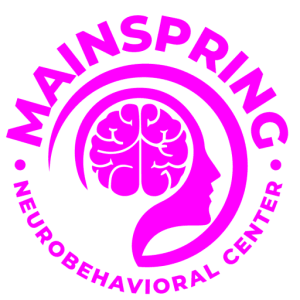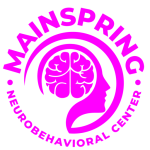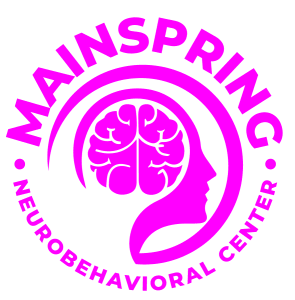When you think about mental health, therapy and medication might be the first things that come to mind. But what if your mental health could be supported in ways that reach beyond traditional treatment? Holistic mental health approaches do just that—taking into account the whole person to address mental wellness from every angle. With a focus on lifestyle, nutrition, and mind-body practices, these approaches offer a way to create balanced, sustainable mental health that goes beyond just managing symptoms. Let’s dive into what holistic mental health truly means and how it could be the key to feeling more connected and complete in your wellness journey.
Why Choose Holistic Mental Health Approaches?
Many people find relief through traditional methods, like psychotherapy or medication, but sometimes feel there’s still something missing. Therapy can be transformative, and medication can be essential, but alone they don’t always cover the full spectrum of well-being. This is where holistic mental health steps in, offering a whole-person approach to support mental wellness by looking at every area of your life.
Understanding Holistic Mental Health: What Is It?
Holistic mental health is all about seeing mental health as one part of a larger system. Instead of isolating your mind from your body or environment, it integrates them. Imagine treating mental health not just as a series of symptoms but as part of a whole-person lifestyle. Holistic approaches bring together mindfulness, nutrition, physical health, and emotional wellness to create a more comprehensive, balanced way to support your mental health.
Some common techniques and tools used in holistic mental health care include:
- Mindfulness and Meditation: Techniques to calm the mind, reduce stress, and enhance emotional resilience.
- Nutrition and Dietary Adjustments: What we eat affects our mental clarity, mood, and energy levels, making diet an essential factor.
- Exercise and Movement: Physical activity has been shown to lift mood, reduce anxiety, and improve focus.
- Alternative Therapies: Practices like yoga, acupuncture, and breathwork that connect mind and body.
- Spiritual or Meaning-Based Practices: Cultivating a sense of purpose or engaging in spiritual practices can help improve mental well-being.
The Problem: Traditional Mental Health Care May Leave Gaps
Relying solely on traditional mental health approaches can sometimes feel like trying to solve a puzzle with only half the pieces. A therapy session may help process thoughts, and medication might stabilize mood, but they don’t always address how you live day-to-day. Lifestyle factors—like what you eat, how much you move, and how well you sleep—have a profound effect on mental wellness but often get overlooked in standard care.
When mental health care doesn’t consider the full picture, it can leave people feeling that something’s missing, or worse, feeling dependent on therapy or medication without exploring natural, sustainable options. Holistic mental health approaches focus on filling those gaps, giving you a toolkit for managing mental wellness in every area of your life.
The Solution: How Holistic Mental Health Approaches Can Help
Holistic mental health approaches treat you as a whole person, focusing on not only symptoms but also on underlying factors and lifestyle choices. This approach offers solutions that are rooted in daily practices and self-care, empowering you to take control of your mental health. Here’s how a holistic focus can make a difference:
- Personalized Care: Instead of a one-size-fits-all treatment, holistic mental health approaches consider your unique lifestyle, preferences, and health needs.
- Balanced Lifestyle Support: From nutrition to physical exercise, holistic approaches create a wellness routine that supports mental and physical health.
- Mind-Body Connection: Practices like yoga, meditation, and mindfulness strengthen the connection between mind and body, making you more resilient to stress.
- Sustainable Change: Rather than relying solely on quick fixes, holistic methods emphasize long-term, daily practices that support sustainable mental health.
Holistic Practices to Enhance Mental Wellness
Let’s look at some specific holistic practices that have been shown to support mental health in profound ways.
1. Mindfulness and Meditation
Meditation isn’t just for relaxation; it’s a powerful tool for mental clarity and stress management. Practicing mindfulness meditation helps in reducing anxiety, managing negative thoughts, and improving focus. Research supports that even a few minutes of daily meditation can increase resilience to stress.
2. Nutrition for Mental Health
The mind-gut connection is real. Foods rich in omega-3 fatty acids, antioxidants, and B vitamins are linked to better mental clarity and mood regulation. On the flip side, sugar, caffeine, and highly processed foods can increase stress and anxiety. A balanced diet that supports brain health can play a huge role in holistic mental wellness.
3. Physical Activity
Exercise has benefits far beyond physical fitness—it boosts serotonin, lifts mood, and even enhances cognitive function. Whether it’s yoga, walking, or strength training, regular movement can help reduce symptoms of anxiety and depression and increase overall feelings of well-being.
4. Breathwork and Yoga
Yoga combines movement, breath, and mindfulness, making it a great holistic approach to mental health. Breathwork can quickly lower stress, while the physical poses in yoga release stored tension in the body. Together, they create a mind-body practice that promotes calmness and focus.
5. Connecting with Purpose
Finding meaning or a sense of purpose is a key component of mental well-being. Whether through volunteering, spiritual practices, or creative activities, focusing on what gives life purpose and joy can build resilience against stress and even improve mental clarity.
FAQs on Holistic Mental Health Approaches
What does a holistic mental health approach include?
Holistic mental health combines practices that support the body, mind, and lifestyle. This might include mindfulness, nutrition, physical activity, and emotional wellness techniques, creating a whole-person approach to mental health.
Is holistic mental health the same as alternative medicine?
Not exactly. Holistic mental health includes complementary practices like meditation, diet, and exercise to support traditional mental health care. It doesn’t replace therapy or medication but rather works alongside them.
How can I get started with holistic mental health approaches?
Start small by incorporating mindfulness practices, focusing on a healthy diet, or finding physical activities you enjoy. It can also help to work with a therapist or counselor who supports holistic mental wellness.
Can holistic approaches replace medication?
Holistic practices are designed to complement traditional treatment, not replace it. Always consult a healthcare professional before making changes to your mental health treatment plan.
Do holistic approaches really work for mental health?
Research shows that practices like meditation, nutrition, and exercise can have significant positive effects on mental health. However, effectiveness depends on individual needs and consistency with the practices.
Wrapping Up: Why Consider Holistic Mental Health Approaches?
Holistic mental health approaches provide more than a temporary fix—they offer a way to integrate mental wellness into your daily life, addressing not just symptoms but also underlying lifestyle factors that affect your mental well-being. By focusing on mindfulness, nutrition, physical health, and emotional resilience, these methods bring a balanced approach to mental health care that promotes sustainable wellness.
When mental health care views you as a whole person, your journey toward well-being becomes about growth, self-care, and empowerment. Taking on holistic practices can be a powerful step toward creating a balanced mental health approach that lasts. If you’re seeking a deeper, more sustainable way to support your mental wellness, holistic mental health approaches offer a flexible, personalized path to finding that balance.










